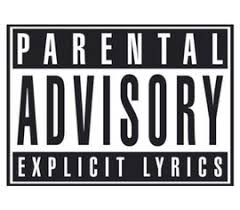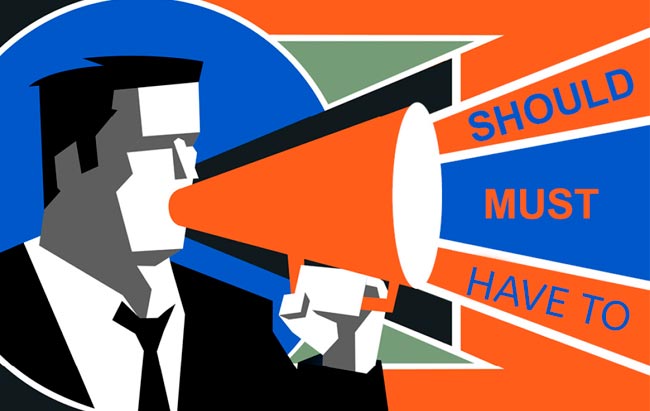Following are more reflections from teaching “Storytelling and Communicating for Change” this fall in the University of Vermont Masters of Leadership for Sustainability program. See my previous post on the notion of “expertise” here.
There’s a reason I love teaching. Designing a syllabus and curriculum challenges me to think strategically about what information and tools folks need, what insights I hope they uncover using them, and how we can collectively help each other in the learning process. Inevitably, along the way, I solidify my awareness of what I have been picking up in my own journey.
And then, then the students ask more questions. They challenge me beyond my own realm of knowledge and experience. They say something in a way I’ve never considered. Their turn of phrase makes my writer’s heart sing. They surprise me with their observations and questions. They inspire me with their passion and inquiry and resolve and love of their communities.
They remind me how important it is to continue to love the questions…
***
Know the difference between “story” and “STORY“
 The term “stories” is thrown around a lot in general and in the “social good” sector; the word itself encompasses many meanings in the English language. In our work, we often see/use journalistic pieces, profiles of individuals, anecdotes, op-eds and opinion pieces – and group them all under the term “story.”
The term “stories” is thrown around a lot in general and in the “social good” sector; the word itself encompasses many meanings in the English language. In our work, we often see/use journalistic pieces, profiles of individuals, anecdotes, op-eds and opinion pieces – and group them all under the term “story.”
So in your use of the word “story,” be ever conscious of its relationship to the art of storytelling and what a story’s specific “requirements” (context, characters, dialogue, tension, lesson, scenes, real time, beginning/middle/end) are. There is real craft and artistic intentionality related to storytelling, and this can offer our sector an important tool that reporting, research, and rhetoric cannot achieve on its own – even with the most perfectly crafted messages or audience analysis.
The importance of your own story
When people root for you, they root for your issue because they can see how you are directly impacted and how you want to reimagine what’s possible! Who wouldn’t want to be on that train?
It is always up to you how much of your story you want to share in any situation. Telling the parts of it that you can, when you can, with the audiences you want to, will continue to fuel you and your work.
When you have the courage to go “all in” on your story, you ask people to see their own suffering as a bridge to other people. It is a form of loving accountability to yourself and with others.
Keep in mind, however, the limitations of the hero’s journey are being acutely felt as we try to demonstrate how collective action is needed to bring about systemic change.
Claiming our own expertise and experience
Claiming your expertise is important because so many of us are taught to minimize our strengths and contributions. Sharing your own experience sets up your credibility in a undeniable and authentic way.
And it’s ok that your story will change over time. And that is in and of itself important to represent – sharing our own learning and evolution is what engenders and invites transformation in others. Sharing specifics of that journey also legitimizes you to the reader/listener. What “a ha!” moments did you have as you learned more? What didn’t you know before? How did you connect your experience?
Stop “should-ing” all over me
Try as much as possible to avoid the “should”s and “must”s that often come with our work. As we write, they can take many forms, “needs/ought to…”, “is essential/vital that…”,
 Indeed, it is important to remind folks that something matters. But if this is what we rely on this imperative as the vehicle for our messages, there’s a couple of issues:
Indeed, it is important to remind folks that something matters. But if this is what we rely on this imperative as the vehicle for our messages, there’s a couple of issues:
- it centers our perspective as the only one that matters,
- it doesn’t build a bridge to others beyond the choir, and
- essentially it communicates our messages in an authoritarian manner.
No one likes to be told what to do. Unless you’ve given a reader/listener the emotional and the rational reason to get on board with you, you risk alienating people with these turns simple turns of phrase. Just like when facts are wielded like armor, you can seem to the reader as if “you winning” or judgment were the only option for them in their interaction with you the writer.
People who care about sustainability and social transformation tend to be conscientious and ethical, with a strong sense of right and wrong. We are crusaders, teachers, advocates for change: always striving to improve things. Not everyone else is.
Does that mean we should banish the words from our lexicons? Not at all. The mindful practice I am asking of us (myself included!) is to stop relying on them.
On vulnerability and communicating for change
There is a vulnerability in sharing our writing, in revealing the inner workings of our head. You decide whether/if/when you are willing to be seen, challenged, or wrong.
“What if I were to write ‘as I hear it’?” you ask. I would want to listen. Writing that is authentically you is what draws people in. Communicating indeed cannot be all about giving people what you think they should or could hear. Communicating is also about giving ourselves the opportunity to be heard – first by ourselves.
The more you can inhabit and share difficult emotions you experience in your communications, yes – the more vulnerable you’ll be.
And the more powerful.
 Be explicit. No, even more explicit.
Be explicit. No, even more explicit.
Don’t just write, “it was inevitable.” You have to fight the curse of knowledge so what you mean can sink for your reader. “It was inevitable because…” Because you had already built a base of concerned people? Mobilized community members to act? Developed leadership from and relationships among people? Help someone who has never been part of community organizing to know what it is all about.
More on stopping the should-ing
What if your learning journey was what was up for inquiry here, not other people’s behavior? What if all of those “shoulds” were turned into “I” statements or questions?
If you give people the “wonderings” of your own experience and inquiry, not just the “shoulds” of their own behavior, you’ll get much further in convincing people why it’s important. Be willing to be judged by what you’ve done and wisdom you’ve acquired, not the strength of the arguments you’re making.
If you give people the “outcomes” of your own inquiry, not just the “shoulds” of their own, I think you’ll get much further in convincing people why it’s important.
Loving the questions
Living with incommensurability is a lifelong journey. Indeed, it requires a lot of generosity and love. I also want to hold that it’s ok to have our reactions to people we encounter or things we read – even if negative. That anger or sadness and disappointment are useful teachers. For me, especially on issues of racism, they show up to demonstrate where the respect and dignity is missing. We build our mindfulness to choose whether and how to communicate in reaction to them. Liberation for all will require all parts of us to be present and we are training ourselves how to let the dissonance ring out, and still hold the line. Lifelong…
Communicating across difference requires us to keep asking questions – a constant balance that requires active discernment. Embrace the tensions as a continuing teacher. They are blessings that will continue to serve you.

Related Posts
10 “big picture” communications questions for the social good sector
Leading From Love: The attentiveness that brought accountability

